Growth and Development
Growth and development are essential biological processes that occur in living organisms. In the context of human biology, growth refers to the physical changes that occur in an individual over time, such as an increase in size, weight, and complexity of the body. Development, on the other hand, encompasses the changes in physical, emotional, cognitive, and social capabilities over the lifespan.
Factors Affecting Growth and Development
Several factors influence the growth and development of organisms:
- Genetics: Genetic traits inherited from parents play a significant role in determining an individual's growth pattern and potential development.
- Nutrition: Adequate and balanced nutrition is crucial for proper growth and development, especially during childhood and adolescence.
- Environment: Environmental factors, including exposure to toxins, access to healthcare, and socioeconomic conditions, can impact an individual's growth and development.
- Hormones: Hormonal activity, such as the release of growth hormone, regulates physical growth in humans and other animals.
- Emotional and Social Factors: Emotional well-being and social interactions also contribute to an individual's overall development.
Stages of Human Development
Human development can be categorized into several stages:
- Prenatal Development: This stage begins at conception and continues until birth. It involves rapid physical growth and the formation of basic body structures.
- Infancy: Infancy spans from birth to around 2 years of age and is characterized by significant physical and cognitive development, including motor skill acquisition and language development.
- Childhood: Childhood extends from the end of infancy to the onset of adolescence. During this period, children experience continued physical growth and cognitive development.
- Adolescence: Adolescence marks the transition from childhood to adulthood and is associated with puberty, rapid physical growth, and hormonal changes.
- Adulthood: Adulthood encompasses the stages of early, middle, and late adulthood, each with its own unique physical, cognitive, and emotional changes.
Study Guide
To effectively study the topic of growth and development, consider focusing on the following key points:
- Understand the difference between growth and development.
- Identify and explain the factors that influence growth and development in humans.
- Describe the stages of human development, including prenatal development, infancy, childhood, adolescence, and adulthood.
- Discuss the role of genetics, nutrition, environment, hormones, and social factors in shaping an individual's growth and development.
- Explore the impact of physical, emotional, and cognitive changes during different stages of human development.
◂Science Worksheets and Study Guides Seventh Grade. Sound
Worksheet/Answer key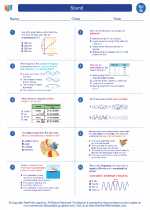 Sound
Sound  Worksheet/Answer key
Worksheet/Answer key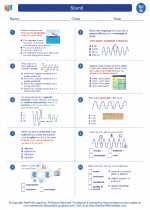 Sound
Sound  Worksheet/Answer key
Worksheet/Answer key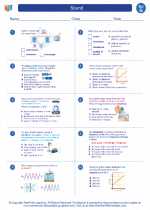 Sound
Sound  Vocabulary/Answer key
Vocabulary/Answer key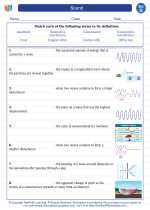 Sound
Sound  Vocabulary/Answer key
Vocabulary/Answer key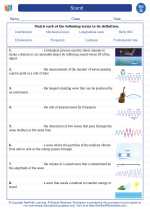 Sound
Sound  Vocabulary/Answer key
Vocabulary/Answer key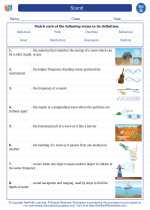 Sound
Sound  Vocabulary/Answer key
Vocabulary/Answer key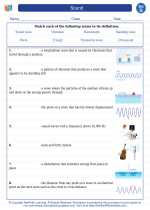 Sound
Sound 

 Worksheet/Answer key
Worksheet/Answer key
 Worksheet/Answer key
Worksheet/Answer key
 Vocabulary/Answer key
Vocabulary/Answer key
 Vocabulary/Answer key
Vocabulary/Answer key
 Vocabulary/Answer key
Vocabulary/Answer key
 Vocabulary/Answer key
Vocabulary/Answer key

The resources above cover the following skills:
Skills and Processes: Students will demonstrate the thinking and acting inherent in the practice of science.
Applying Evidence and Reasoning: Review data from a simple experiment, summarize the data, and construct a logical argument about the cause-and-effect relationships in the experiment.
Describe the reasoning that lead to the interpretation of data and conclusions drawn.